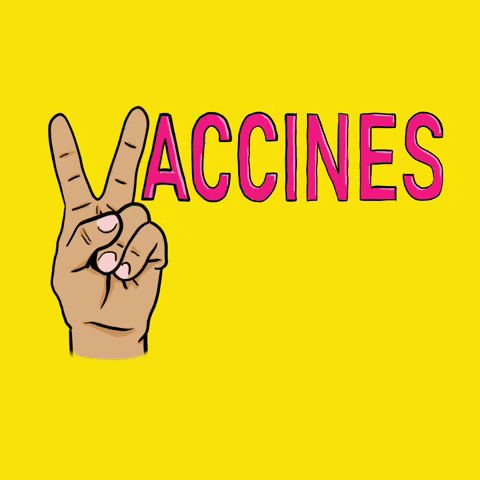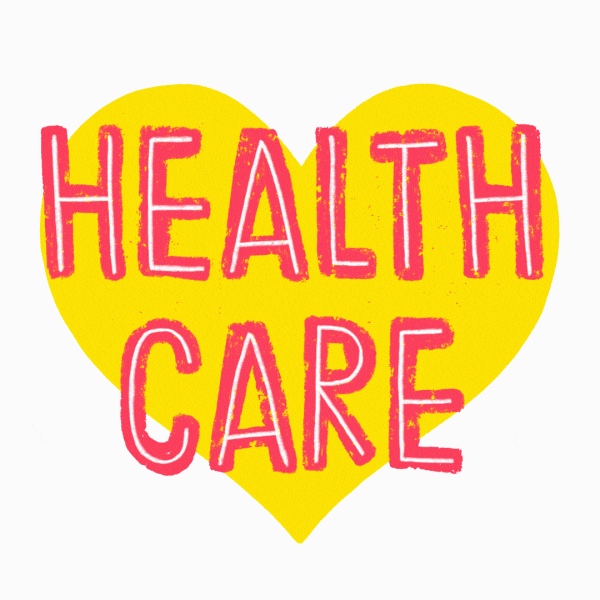COVID-19 Updates
Since our December Monthly Policy Update, a lot has happened regarding the COVID-19 pandemic. First, a new variant traveled through the United States. Omicron spread much faster than any previously known variant of the coronavirus thus far, burdening health care systems to an unprecedented extent and creating tremendous challenges for the workforce, schools, families, and small businesses. This has led to some new developments on COVID-19 policy.  The CDC recommends Pfizer or Moderna vaccines for those age five and up who are not vaccinated. For those who have received their first set of shots, a booster shot is now recommended: 1) if you are 12 or older and it has been 5 months since you received the second dose of Pfizer; 2) if you are 18 or older and received the second dose of Moderna more than five months ago; or 3) you received a Johnson & Johnson shot more than two months ago. For more on vaccinations visit the CDC’s COVID vaccine FAQ page here.
The CDC recommends Pfizer or Moderna vaccines for those age five and up who are not vaccinated. For those who have received their first set of shots, a booster shot is now recommended: 1) if you are 12 or older and it has been 5 months since you received the second dose of Pfizer; 2) if you are 18 or older and received the second dose of Moderna more than five months ago; or 3) you received a Johnson & Johnson shot more than two months ago. For more on vaccinations visit the CDC’s COVID vaccine FAQ page here.
To make COVID-19 testing more accessible, the Biden Administration has taken several steps: 1) Private insurance companies are now required to provide no cost at-home COVID-19 testing.Tests can be obtained from pharmacies, retailers, and online vendors. 2) Every household is entitled to order four free at-home COVID-19 tests. Visit this website to get yours. Funded by the American Rescue Plan Act, the Biden Administration’s goal is to distribute half a billion free rapid tests throughout the country.
Additionally, free N95 masks will be made available for free at some local pharmacies and community health centers by early February. 400 million N95 masks will be coming from the Strategic National Stockpile, limited to three per person. The Biden Administration has also extended the pause on federal student loan repayments from January 1, 2022 to May 1, 2022.
On the state level, most states have ended their eviction moratoriums and few states are enforcing mask mandates. Use this multistate policy tracker to keep track of the changing state policies regarding COVID-19.
Health Care Access
HRSA Updates the Affordable Care Act Preventive Health Care Guidelines
 The U.S. Department of Health and Human Services (HHS) announced the Health Resources and Services Administration (HRSA) updated its guidelines under the Affordable Care Act (ACA) to make comprehensive preventative care and screening for women and children more accessible. The updated guidelines require that certain group health plans and insurance providers provide coverage for important preventative health services – like lactation services, contraceptives, screening for HIV, counseling for STIs, and suicide risk screening for adolescents – with no out-of-pocket costs. As part of the updated guidelines, there will also be no copay or deductible for electric breast pumps for breast and chest feeding, as informed by the Women’s Preventive Services Initiative (WSPI).
The U.S. Department of Health and Human Services (HHS) announced the Health Resources and Services Administration (HRSA) updated its guidelines under the Affordable Care Act (ACA) to make comprehensive preventative care and screening for women and children more accessible. The updated guidelines require that certain group health plans and insurance providers provide coverage for important preventative health services – like lactation services, contraceptives, screening for HIV, counseling for STIs, and suicide risk screening for adolescents – with no out-of-pocket costs. As part of the updated guidelines, there will also be no copay or deductible for electric breast pumps for breast and chest feeding, as informed by the Women’s Preventive Services Initiative (WSPI).
Preventative care should be accessible and absolutely free. This is a win for health care, women, transfolks, children, and all those most impacted by the inequitable healthcare system, including Black and brown people and people of low-income. Cost-sharing makes it hard for people to access the healthcare they deserve- eliminating this element will help save lives and save families from the financial burden of copays and deductibles.
No Surprises Act: Understand Your Rights Against Surprise Medical Bills
After multiple delays in Congress, the No Surprises Act went into effect January 1, 2022. The No Surprises Act protects people covered under health insurance plans from receiving surprise medical bills when they receive most emergency services and non-emergency services from out-of-network providers at facilities that are in their network plans. For example, if a person needs to go to the hospital for an emergency surgery and that hospital is in-network, they no longer have to worry about unexpected costs from out-of-network providers at those hospitals, such as services from out-of-network anesthesiologists and surgical assistants which average $1,200 and $2,600 respectively. The Act also establishes a mechanism for dispute resolutions between insurance plans and providers as well as for uninsured and self-pay individuals when they receive a medical bill that is substantially greater than the estimate they initially received from a provider.
Seeking help after getting sick shouldn’t cause debt, but in the U.S., it’s estimated that more than 60% of bankruptcies are tied to medical costs. Medicare and Medicaid already prohibit surprise billing of patients – it is only right that the No Surprises Act ensures everyone the same opportunity.
California Proposing to Expand Medicaid to All Undocumented People
To help reduce the number of uninsured Californians, Governor Gavin Newsom is proposing to expand Medicaid to all immigrants, including those who are undocumented. In 2019, California began providing health coverage to immigrants under age 26, and in 2021 expanded coverage to immigrants age 50 and over. Now, Governor Newsom is proposing that Medicaid will be available to all immigrants of any age and any immigration status – by the beginning of 2024.
Expanding Medicaid in Georgia Would Free Up Over $50m Ryan White Dollars to Improve HIV Care and Treatment Access, study finds
The Equality Foundation of Georgia released the results of a commissioned budget review investigating the impact Medicaid expansion could have on HIV treatment and care funds in the state of Georgia. According to the report, if Georgia expanded Medicaid, over 500,000 Georgians would qualify for health insurance, and over half of Ryan White clients in the state would newly qualify for Medicaid. This would free up an estimated $53.7 million in Ryan White funds to provide care and treatment to people living with HIV, including additional wrap-around services, without any increased costs to the state.
Currently Georgia is one of twelve states that has not signed on to Medicaid expansion through the Affordable Care Act. If Georgia did sign on, it would essentially close the “coverage gap” by allowing more Georgians whose monthly income prohibits them from qualifying for Medicaid but who cannot afford to participate in the government subsidized healthcare marketplace to participate in Medicaid, thus having the healthcare they deserve.
Economic Justice

Twenty One States Increased their Minimum Wages in the Last Few Weeks While the Federal Minimum Wage Goes Unchanged
The federal minimum wage in the US. has been $7.25 since 2009. Because the federal wage has gone unchanged, workers and states have taken this into their own hands. As of January 1, 2022, twenty-one states have increased their minimum wages through approved legislation, ballot initiatives, and other state-mandated wage increases. Meanwhile, workers continue struggling to survive. We need a robust federal minimum wage. To urge Congress to raise the federal minimum wage, take action here.
Reproductive Health, Rights, and Justice
Abortion Access Update
As we honor the 49th Anniversary of the U.S. Supreme Court case of Roe v. Wade, making abortion a constitutional right, we are also facing major challenges – some that aim to overturn Roe completely. Texas’ Senate Bill 8 – a law making it illegal to have an abortion after six weeks of pregnancy and Mississippi’s Dobbs v. Jackson U.S. Supreme Court case – a case challenging a law that bans abortion after 15 weeks of pregnancy are two issues that have been at the forefront of the abortion access conversation for months now. These issues have also given way for a record number of states to enact stringent new laws limiting abortion access. If Roe was to be overturned, then the power to regulate abortion would be in the hands of the states.
Twelve states currently have “trigger-laws” waiting to go into effect that would ban all or nearly all abortions if the U.S. Supreme Court’s decision in Dobbs overturns Roe. With legislative sessions happening now in many states, we are likely to see anti-abortion and pro-abortion legislation being introduced as well as being placed on the ballots. Despite several states looking to further restrict abortion access, there are also states doing eveything in their power to protect it. Currently thirteen states and the District of Columbia that have laws protecting the right to have an abortion. The decision in Dobbs will be made public in June.
FDA Approves Mailed Abortion Pills
 The U.S. Food and Drug Administration (FDA) recently announced it is lifting the requirement that people seeking medication abortion must pick up their pills in-person, allowing the pills to be sent by mail instead. Medication abortion is a form of abortion which ends pregnancy by a person ingesting two pills: mifepristone and misoprostol. Medication abortion accounts for half of the abortions that occur before nine weeks of pregnancy. The Biden administration is taking steps to advance abortion access by allowing the pills to be sent by mail, and proactively to mitigate the impacts of the possible reversal of Roe v. Wade.
The U.S. Food and Drug Administration (FDA) recently announced it is lifting the requirement that people seeking medication abortion must pick up their pills in-person, allowing the pills to be sent by mail instead. Medication abortion is a form of abortion which ends pregnancy by a person ingesting two pills: mifepristone and misoprostol. Medication abortion accounts for half of the abortions that occur before nine weeks of pregnancy. The Biden administration is taking steps to advance abortion access by allowing the pills to be sent by mail, and proactively to mitigate the impacts of the possible reversal of Roe v. Wade.
Unfortunately, nineteen states have already taken steps to restrict telemedicine or place onerous barriers on medication abortion access. For example, people seeking abortions in South Dakota must wait 72 hours after physically meeting with a physician before beginning the medication abortion process and both drugs have to be picked up in person at a licensed abortion facility. This means a pregnant person in South Dakota has to visit an abortion facility *four times* just for a medication abortion.
Medication abortions are proven to be safe, effective, and managable for at-home use. These restrictions are designed to limit access, and the FDA’s action allowing abortion medication by mail is one step towards overcoming barriers to abortion care.
California Requiring Health Plans to Cover At-Home Tests for HIV and STIs
 In a push to address the recent nationwide spike in STIs since the COVID-19 pandemic, California is now the first state to require health insurance plans to cover at-home testing for HIV and STIs. The law, Senate Bill 306 (SB306), went into effect January 1, 2022. At-home testing not only offers privacy and comfort to folks who are concerned about speaking with a health care provider about sex, but also makes testing easier for folks who live in rural areas and may need to travel far for health care. This bill combats the barrier of resources for testing as well as the fear of out-of-pocket costs for testing.
In a push to address the recent nationwide spike in STIs since the COVID-19 pandemic, California is now the first state to require health insurance plans to cover at-home testing for HIV and STIs. The law, Senate Bill 306 (SB306), went into effect January 1, 2022. At-home testing not only offers privacy and comfort to folks who are concerned about speaking with a health care provider about sex, but also makes testing easier for folks who live in rural areas and may need to travel far for health care. This bill combats the barrier of resources for testing as well as the fear of out-of-pocket costs for testing.
Ending Criminalization
NJ Bill to Modernize NJ Statutes Related to HIV Transmission Passes Senate
The New Jersey state Senate passed a modernized statute related to HIV transmission and is likely to be signed by Governor Phil Murphy. On its face, bill S-3707 would repeal a current statute that makes it a crime for a person living with HIV to engage in oral, anal, or vaginal sex while knowing that they are living with HIV or another STI. Some are touting this new legislation as a win for HIV decriminalization efforts but in passing the bill, the Senate Committee clarified their intention to continue prosecuting infectious disease exposure through another existing criminal endangerment law, while eliminating specific reference to HIV and other STIs by name. S-3707 would actually broaden potential criminal liability for people living with HIV and people living with STIs by criminalizing more conduct than just sexual contact. Our partners at the Center for HIV Law and Policy have a helpful summary of the bill’s implications here.
HIV-Related Arrests are Much Higher for Women and Black People in Some States
Many states have laws that criminalize HIV ranging from bans on sex work, organ donation, and even “causing a police officer engaging in their official duties to come into contact with an HIV positive person’s bodily fluid.” These laws are archaic, discriminatory, cost the freedom of people living with HIV, and like other parts of the criminal justice system, racist.
In Kentucky, women account for 62 percent of HIV-related arrests. 97% of HIV-related arrests in the state stem from the criminalization of sex work, demonstrating how crucial it is for HIV decriminalization advocates to take on sex work decriminalization. In Kentucky, a person can be arrested for sex work without having engaged in sexual activity. If that person is living with HIV, they can face a felony charge under the state’s wanton endangerment law, which carries up to five years in prison even if HIV was not or could not have been transmitted.
It’s not just Kentucky. We see the connection between criminalization of sex work and HIV status in other states, such as California. In Virginia, Black men are most likely to be arrested and convicted under Virginia’s laws criminalizing HIV. Black men make up 20%of Virginia’s population, and 40%of the state’s population of people living with HIV, but 59%of those arrested in relation to HIV criminalization statutes. Virginia modernized its HIV criminalization law in 2021 to remove the clause that makes it a misdemeanor to engage in sexual activity without disclosing HIV positive status. Now the new law limits criminalization to actual, intentional transmission of HIV – which remains a felony charge.
LGBTQ+ Rights, Safety, and Justice
Work Resumes on the Nation’s Only Major Transgender Study
 The National Center for Transgender Equality announced it is collecting data for the 2022 U.S. Transgender Survey after two years of delays. This survey has helped to provide data on transgender issues like health, employment, housing, education, and discrimination, and has been used by the government, courts, and medical institutions to support everything from writing laws to creating social services for trans people. A larger number of people than ever are expected to take the survey. If you identify as trans and are 16 or older and want to participate in the survey, click here.
The National Center for Transgender Equality announced it is collecting data for the 2022 U.S. Transgender Survey after two years of delays. This survey has helped to provide data on transgender issues like health, employment, housing, education, and discrimination, and has been used by the government, courts, and medical institutions to support everything from writing laws to creating social services for trans people. A larger number of people than ever are expected to take the survey. If you identify as trans and are 16 or older and want to participate in the survey, click here.
COVID-19 Vaccination is Complicated for Trans and Gender Nonconforming People
The CDC is requiring vaccination providers like CVS to collect sex assigned at birth for COVID-19 vaccines, creating an unnecessary hurdle for people of trans experience. CDC claims to use this information to monitor trends and vaccine side effects. In April 2021, CVS vowed to only require that patients disclose their gender, not their sex assigned at birth, to recieve a COVID-19 vaccine. Now, a pop-up screen on CVS’ website states that that CDC requires CVS to collect sex assigned at birth on the online vaccination form. Also, trans folks who changed their name after getting vaccinated have had to do an extensive amount of work to change their names on their COVID-19 vaccination cards. A vaccination card that does not reflect a person’s name change creates a constant threat of being outed or dead-named, creating a severe safety and access issue for trans people.
In the Midst of a Severe Blood Shortage, Gay Men Are Still Barred From Donating Blood
The American Red Cross announced that the U.S. is in a “national blood crisis,” due to the COVID-19 pandemic causing a 62%decline in the number of people donating blood at schools and colleges. Due to this dangerous shortage, doctors are making difficult decisions about who receives blood transfusions. The Red Cross is urging people of every blood type to make an appointment to donate blood but one group of people is still not allowed to donate blood even if they want to: men who have sex with men (MSM). The FDA banned MSM from donating blood amid the inception of the HIV crisis in the U.S. That policy was not updated until 2015 where MSM were required to abstain from sex for a year before donating blood. The policy was updated once more in 2020, requiring MSM to abstain from sex for 90 days prior to donating blood. Much has changed in the forty years since the HIV epidemic first began, and developments in science have ensured the safety of blood donations. By testing blood prior to transfusions, the chances of acquiring HIV from a blood transfusion are extremely unlikely. The FDA must end this ban as modern science has allowed a healthy and safe blood donation and transfusion process for all people, including men who have sex with men.



